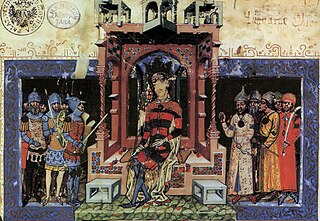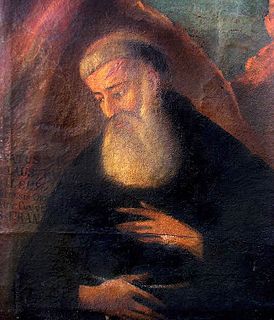 W
WMissal of duke Novak was a 14th-century Glagolitic missal. The letters of the missal were later used for the first Croatian printed book Missale Romanum Glagolitice.
 W
WDujam (II) Frankopan, also Dujam II of Krk, was a Croatian noble, an early member of the illustrious House of Frankopan, who took control of the Adriatic Sea's western coast in Croatia, which had been in a personal union with Hungary since 1102. As Count of Krk, he also ruled the area of Modruš and Senj.
 W
WNikola IV Frankopan was a Croatian nobleman and the Ban of Croatia and Dalmatia from 1426 to 1432.
 W
WGeorge II Šubić of Bribir was Croatian nobleman, a member of the Šubić noble family, who ruled from the Klis Fortress.
 W
WJohn of Palisna was a Croatian knight and warrior, prior of Vrana, and Ban of Croatia.
 W
WJuraj Lovrov Zadranin or Juraj Lovrin was a Croatian architect and builder, born in Zadar and mostly active in Dubrovnik.
 W
WBlessed Augustin Kažotić was a Dalmatian-Croatian Roman Catholic prelate and professed member from the Order of Preachers who served as the Bishop of Lucera from 1322 until his death. Kažotić was a humanist and orator who had served first as the Bishop of Zagreb from 1303 until 1322. Kažotić studied in Paris before returning to his homeland where he began working in the missions and preaching in modern Bosnia. He was one of the first humanist figures to appear in southern Croatia.
 W
WNicholas Kont of Orahovica was a Croato-Hungarian nobleman, very powerful and influential in the royal court of king Louis the Angevin, serving as Count palatine. He was the forefather and founder of the Iločki noble family.
 W
WMladen I Šubić of Bribir was a Croatian nobleman who was a member of Šubić family, at the end of 13th and beginning of the 14th century.
 W
WMladen II Šubić of Bribir, a Croatian leader and member of the Šubić noble family, was a Ban of Croatia and Lord of all of Bosnia. After succeeding his father Paul, he further consolidated the Šubić domain, and brought Stephen Kotromanić to administer Bosnia under his overlordship. His subsequent rule marked the weakening of the Šubić and ended with a mutiny of Dalmatian cities and Croatian nobility in 1322. This further led to Mladen's deposition and imprisonment by king Charles I of Hungary, whom the Šubićs had previously brought to the throne in Hungary with the help of other lords. Mladen continued to develop the state and court institutions, and his de facto rule led to the further development of the chivalric culture in Croatia.
 W
WJelena Šubić was a member of the Bribir branch of the Šubić noble family who ruled the Banate of Bosnia as regent from 1354 until 1357.
 W
WJelena Šubić was the daughter of Stefan Uroš III Dečanski of Serbia and the half-sister of Stefan Dušan. She was married to the Croatian magnate Mladen III Šubić, Prince of Bribir from noble Šubić family. They ruled from Klis Fortress in Dalmatia. After Mladen III Šubić's death, she ruled as his widow over Skradin and Klis.
 W
WNicholas Tavelic was a Croatian Franciscan friar and missionary who died a martyr's death in Jerusalem on November 14, 1391. He was beatified as part of Nicholas Tavelic, O.F.M. and companions, which included friars from Italy and France. All four members of his group have been declared saints by the Catholic Church, making Tavelic the first Croatian saint.